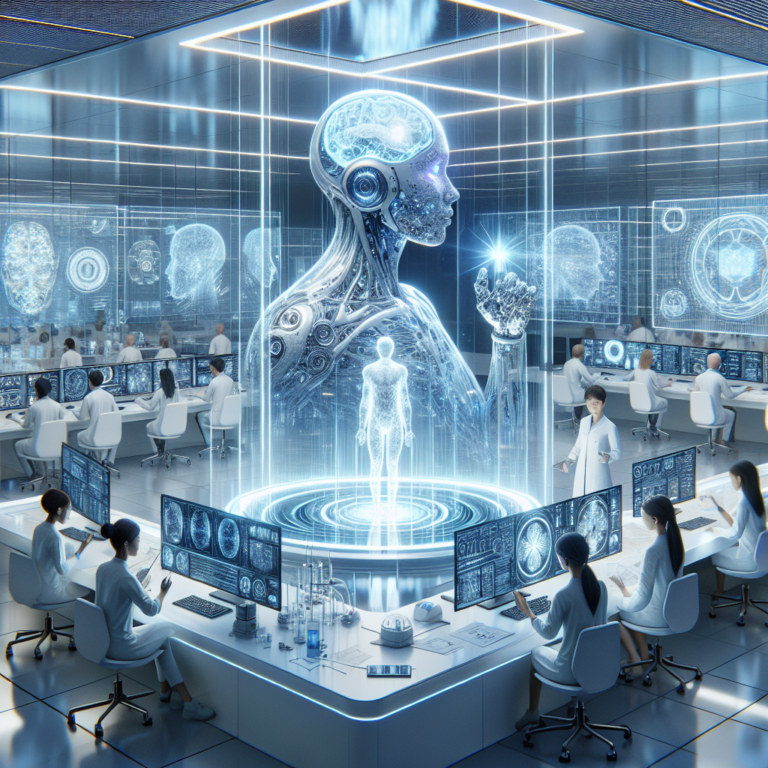OpenAI’s Focus on Superintelligence AI: Pioneering Tomorrow’s Innovations
From AGI to the Pursuit of Superintelligence AI
Recently, OpenAI CEO Sam Altman made a significant announcement on his blog, revealing that the company is shifting its emphasis away from artificial general intelligence (AGI) and towards developing superintelligence AI. According to Altman, OpenAI has acquired essential knowledge for AGI and now aims to explore superintelligence as the new frontier of technological advancement.
A Visionary Approach to the Future
Altman underscored the importance of this transition, illustrating the vast potential of superintelligent tools. He remarked, “We love our current products, but we are here for the glorious future.” The vision for superintelligence AI includes a remarkable enhancement of scientific discovery and an acceleration of innovation, paving the way for greater abundance and prosperity.
The Anticipated Timeline for Superintelligence AI
In previous discussions, Altman suggested that superintelligence may be just “a few thousand days” from becoming reality. He characterized this upcoming shift as “more intense than people think,” reflecting a sense of urgency and eagerness about this technological evolution.
Clarifying the Meaning of AGI
AGI, or artificial general intelligence, is a complex concept. OpenAI defines it as “highly autonomous systems that outperform humans at most economically valuable work.” Together with Microsoft, OpenAI has established a financial benchmark for AGI, which is set at AI systems that can generate at least $100 billion in profits. As per current agreements, Microsoft will lose access to OpenAI’s technology once this level is reached.
Interpreting the Definition of Superintelligence
While Altman did not specify which definition of AGI he was referring to, it is likely aligned with the previous description. He indicated that AI agents—autonomous systems capable of performing tasks—might become integrated into the workforce soon. This transition could fundamentally transform productivity and output across various industries.
Promoting Innovation with AI Tools
Altman expressed a strong belief in the power of providing impactful tools to people. He stated, “We continue to believe that iteratively putting great tools in the hands of people leads to great, broadly-distributed outcomes.” This emphasis on collaboration between AI technology and human users is crucial for harnessing maximum benefits.
Current Challenges in AI Technology
Despite a forward-thinking outlook, today’s AI technology encounters numerous hurdles. For example, some systems can produce errors, termed “hallucinations,” and they may make mistakes obvious to human observers. Furthermore, the operational expenses associated with these technologies remain notably high.
Optimism for Overcoming Technological Obstacles
Altman is confident that OpenAI can effectively manage these challenges. However, the tech industry has demonstrated that the timelines for advancements can change unexpectedly. Thus, while there is hope for the future, adaptability remains vital in navigating these developments.
OpenAI’s Unique Position in Technological Progress
He mentioned, “We’re pretty confident that in the next few years, everyone will see what we see,” highlighting the importance of measuring action carefully while working toward benefits and empowerment within AI usage. As OpenAI transitions to focusing on superintelligence AI, the company recognizes the significant responsibilities that accompany its role in this landscape.
The Critical Nature of Safety Measures
As OpenAI adjusts its focus, there is a growing expectation for the company to invest adequate resources into ensuring the safe development of superintelligent systems. OpenAI has previously acknowledged that moving towards a superintelligent future is “far from guaranteed,” underscoring the complexity of managing advanced AI technologies.
Serious Considerations Surrounding Safety Protocols
In a blog post earlier this year, OpenAI admitted that there are currently no established methods for managing or overseeing the actions of a superintelligent AI, raising significant concerns. The company cautioned that human supervision could be unreliable for AI systems that surpass human intelligence, highlighting a need for innovative strategies.
Shifts in Organizational Priorities
Since the latest announcement, OpenAI has experienced various changes, including the disbanding of specialized teams focused on AI safety, particularly in relation to superintelligent systems. Some prominent researchers have departed from the company, citing commercial pressures as their primary reason for leaving. Presently, OpenAI is restructuring to increase its attractiveness to external investors.
Tackling Safety Concerns Proactively
In a recent interview, when asked about criticisms of OpenAI’s safety focus, Altman pointed to the company’s historical performance in this area. This reference to past achievements suggests confidence in OpenAI’s capability to balance innovation with safety during its advancements in AI technology.
The Exciting Path Ahead with Superintelligence AI
As OpenAI forges ahead in the quest for superintelligence AI, the potential ramifications for sectors such as scientific research and technological development could be substantial. It is critical that as these advanced systems emerge, a strong emphasis on safety and ethical considerations remains a priority to ensure responsible evolution in the field.




0 Comments